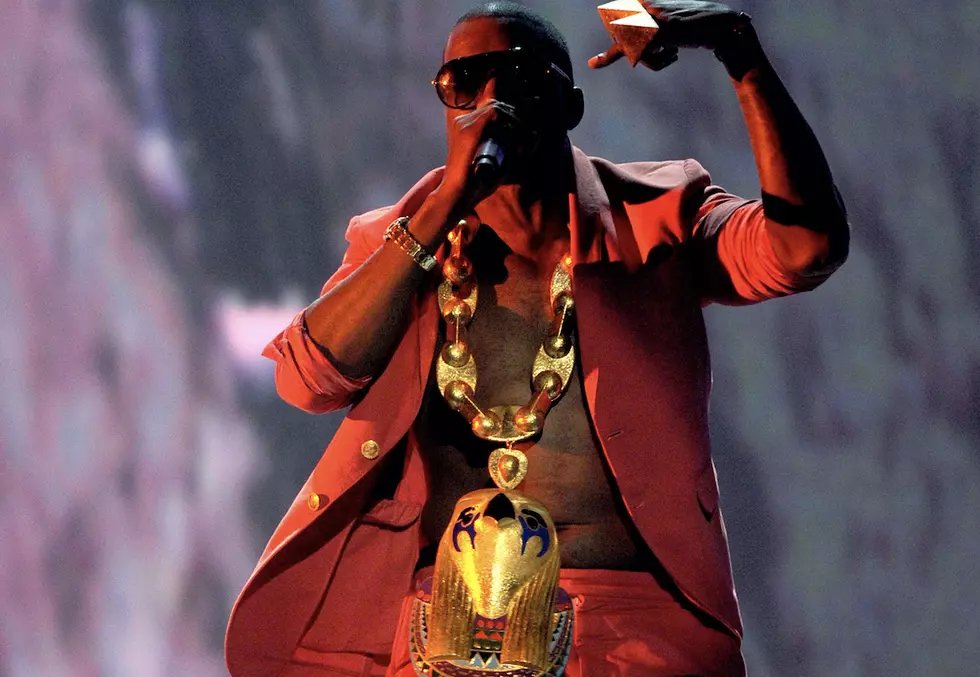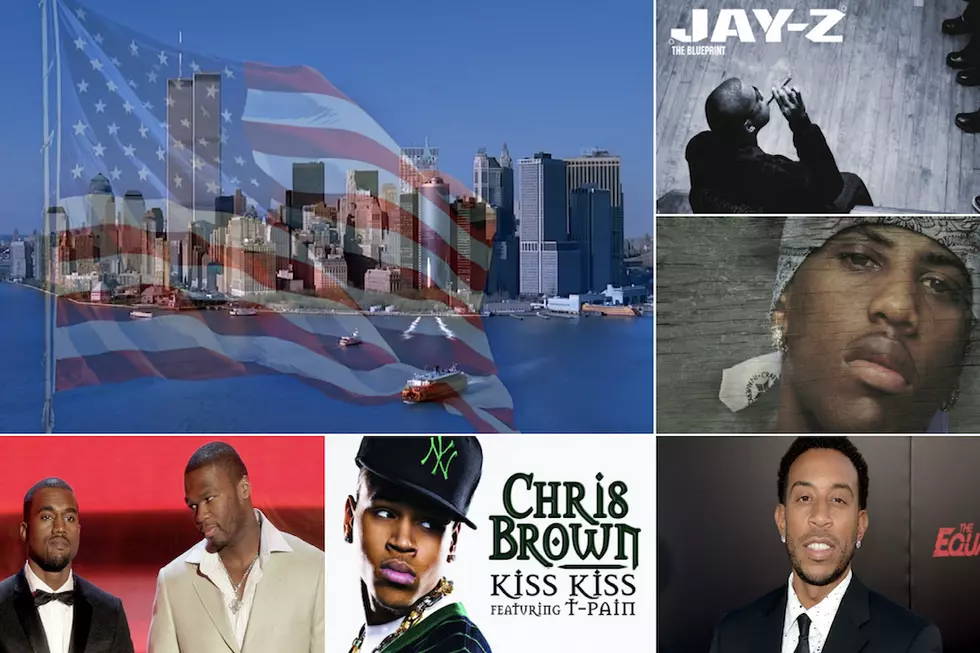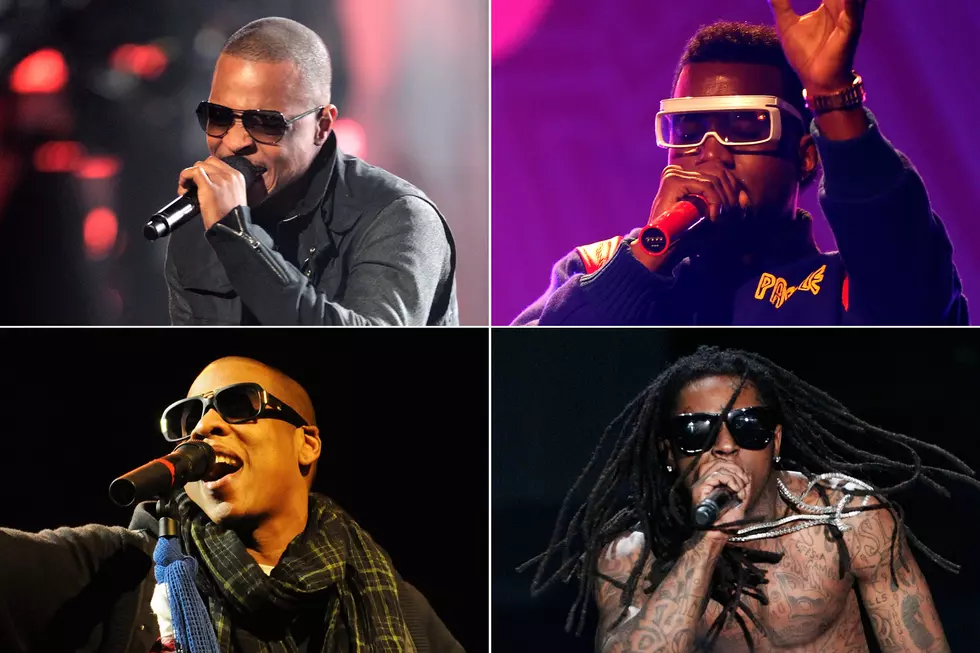
Let’s forget Erratic Kanye and Remember ‘808s & Heartbreak’ 10 Years Later
Somewhere far along this road, Kanye lost his soul.
Or at least that’s been the conversation since the rap icon aligned himself with President Donald Trump last month, tweeting how they were “brothers” who shared “dragon energy,” as West posed with a “Make America Great Again” hat signed by Trump himself.
For some fans, Ye’s latest erratic spree — complete with the proclamation that African slaves made a choice to be enslaved in the United States — was a finally a bridge too far for the notoriously controversial mogul, while others wrote off the online rant as a publicity stunt or some sort of overblown performance-art piece conjured to promote his upcoming album, Love Everyone, due out June 1.
Whatever the case, between West’s baffling political barbs, televised award-show harangues and unspeakably famous in-laws, it’s become increasingly challenging to separate Kanye’s ego from his musicianship, and all the groundwork that his music — arguably the most significant rap songbook penned this century — has laid for the current generation of superstar rhymers.
Like it or not, Drake probably isn’t Drake, Post Malone definitely isn’t Post Malone, and hip-hop almost certainly isn’t the dominant genre of American music in 2018 without West and his super-sized influence. But that’s an exceedingly broad statement, isn’t it — like something West himself would shout down onto the haters from his floating Pablo stage. When we say “influence,” what do we actually mean?
Today, nearly ten years removed from its original release, we’re talking about 808s & Heartbreak, West’s brilliantly striking electro-pop experiment that not only played anti-hero to his acclaimed collegiate trilogy but began the demolition between rap, pop and EDM genre lines in earnest. It was a record that drew a blueprint for hip-hop in the 2010s, where minimalism and melancholy could prove just as propulsive as boom-bap and classic gangster bravado, and where oft-maligned auto-tune could weaponize a voice and reshape it as a compelling new instrument.
Heartbreak is easily West’s most under-appreciated album, a largely forgotten journey deep into the digital jungle, stashed between two Yeezy hallmarks in Graduation (2007) and My Beautiful Dark Twisted Fantasy (2010). And it’s a stark reminder that below all the recent head-shaking hijinks lies one of the most explosively creative minds of this rap generation.
Released in November 2008, just 14 months after the mammoth success of Graduation and amid his globe-trotting Glow In The Dark tour, Heartbreak was the first Kanye product to drop after the sudden death of his mother, Donda, following complications from liposuction surgery in late 2007. While he chose not to address that specific anguish until the album’s final track, a devastating live freestyle called “Pinocchio Story,” he channels his grief into the LP’s encompassing theme of lost love, masking the first 45 minutes of music as a break-up album (granted, he had parted with then-fiancée Alexis Phifer around this time as well).
“808s came from suffering multitude losses at the same time—it’s like losing an arm and a leg and having to find a way to keep walking through it,” West said in an interview around this time.
Yet considering such a dramatic sonic departure from his previous three records, West could’ve been rap-singing about Cheerios and still would’ve raised eyebrows. The use of auto-tune, synth-bass and mechanized beats — created largely through the Roland TR-808 drum machine, a staple in the current “trap” super-trend — on Heartbreak is conceptual bordering on insistent, and was as overt a risk as West has ever taken with his music, though the rest of the genre would soon catch up.
Experimentalism in hip-hop has ballooned since the release of Heartbreak, where Drake, Kid Cudi, and Frank Ocean have all followed a similar path of introspection — while West himself has ventured into full-on auteur-ism. Drake is even quoted in 2009, at the outset of his hip-hop career, saying West was “the most influential person” on his sound. And of course, artists like Travis Scott have continued to use auto-tune as a defining characteristic in their aesthetic.
Though Heartbreak is somehow still a melodically lush record, especially on tracks lost to time after the immense success of sparser singles “Heartless” and “Love Lockdown.” Don’t sleep on the addictive bass riff to “Paranoid,” which sounds like a Black Eyed Peas B-side or the triumphant hook to “RoboCop” with its orchestral strings and bells — was that an electric triangle or a glockenspiel we heard?
Ultimately, no rapper this century has been portrayed as even remotely as audacious as West, and while we scoff at Kanye circa 2018 and await whatever wild thing comes out of his mouth next, let’s just try and remember that plenty of creative good has come from his bombastic persona as well. And even if all of Love Everyone is just seven tracks of trolling “poop-diddy, whoop-scoop” lyrics, at least the longtime Kanye fans can revel in this 10-year anniversary, when an artist was faced with the greatest emotional traumas of his life and morphed his shattered soul into a piece of wondrous millennial art-pop.
More From TheBoombox









